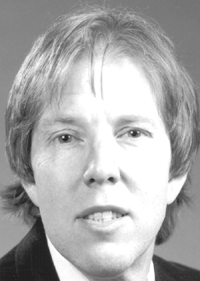|  Thomas Schneeweis is Professor of Finance at the School of Management at the University of Massachusetts, and Director of the Center for International Securities and Derivatives Markets (CISDM/SOM). He is President of Schneeweis Partners, LLC, which specializes in analytical support in the areas of multi-advisor fund creation, asset allocation, and risk management services. He also edits The Journal of Alternative Investments , is head of the educational committee of the Alternative Investment Management Association and is a frequent speaker at academic and industry events dealing with alternative investments. Hedge funds and managed futures investing -
'Beware of the unknown, beware of hedge funds.' In fact, most hedge funds have lower risk than individual stocks or even stock indices. Individual stocks have an annual volatility (i.e. standard deviation) of about 30%. The S&P500's annual volatility is about 15%. Most hedge funds (with the exception of some long bias or global macro hedge funds) have an annual volatility below 15% and even commodity trading advisors (futures and option traders) have annual volatilities close to that of the S&P500. -
'Stocks for the long run.' In fact, hedge funds do add benefits to established traditional stock and bond portfolios. Most stocks move up together and down together. As a result, in order to diversify, investors need to invest in investment vehicles such as hedge funds which are constructed to be less sensitive to stock market movements. -
'To know the future look at the past.' The past foretells the future in many areas but not in stock and bond investment or in hedge funds. Each strategy makes money in unique markets. Only if the market conditions remain constant will the immediate past reflect the future. -
Just look at the tracks if you want to know the animal. Some hedge funds maintain that they are not correlated with the stock market when in fact they are merely an equity fund in hedge fund format. Test the actual performance of the hedge fund with indices which reflect traditional stock and bond investment, as well as hedge funds which reflect hedge fund performance. Stock and bond indices exist which reflect the performance of equity and fixed income portfolios Similarly, there are a number of hedge fund indices (e.g., Zurich Hedge Fund Indices) which offer similar performance tracking for hedge funds. -
Beware the man behind the curtain. Some hedge fund managers maintain that their system is so secret that they cannot tell you how it works or why it works. When you meet these managers simply walk away. Never trust a man who will not tell you what is behind the curtain. -
When all else fails, manipulate the data. Many hedge fund managers will promote ideas that have no historical record of performance. At times this may be okay, but never rely solely on the data. Place your trust in the foundations of the trading idea not in the performance data. -
'Clothes maketh the man.' In fact, as for any investment, one must look behind the size of the firm, the office space and so on, and concentrate on the actual source of the return. If the manager cannot tell you why the strategy makes money in less than five sentences, move on. -
'The Government will protect you.' Some investors believe that there is greater government oversight and protection in traditional stocks and bonds than in hedge funds. In fact, most hedge funds have to meet regulatory requirements subject to the markets they trade (e.g., register as a CTA if trading in futures and option markets). However, in both traditional and alternative investment, no amount of government oversight can protect you from an incompetent manager or one who wishes to defraud you. Caveat Emptor. -
'One always knows the value of one's stock portfolio but not one's hedge fund.' Unfortunately, many stock and bond funds' net asset value does not reflect its true market value. For instance, emerging market prices are often outdated . By contrast, many hedge funds trade in the most liquid markets, such as futures and option markets, or in highly liquid equity markets. In addition, for most large investments daily pricing and evaluation is normal. -
'Only the wealthy should invest in hedge funds.' Traditional Assets Forms of Investment (e.g. mutual funds, structured notes) exist for hedge funds. Moreover, new forms of investment are being created which let individuals invest in hedge funds with less than a $10,000 investment. www.som.umass.edu 'Be aware of the economic cycle. While spending on eating out, health, fitness and other leisure pursuits is undoubtedly in long- term secular increase, it is also highly discretionary and one of the first to go in economic downturns.' ”Simon Johnson |  |
